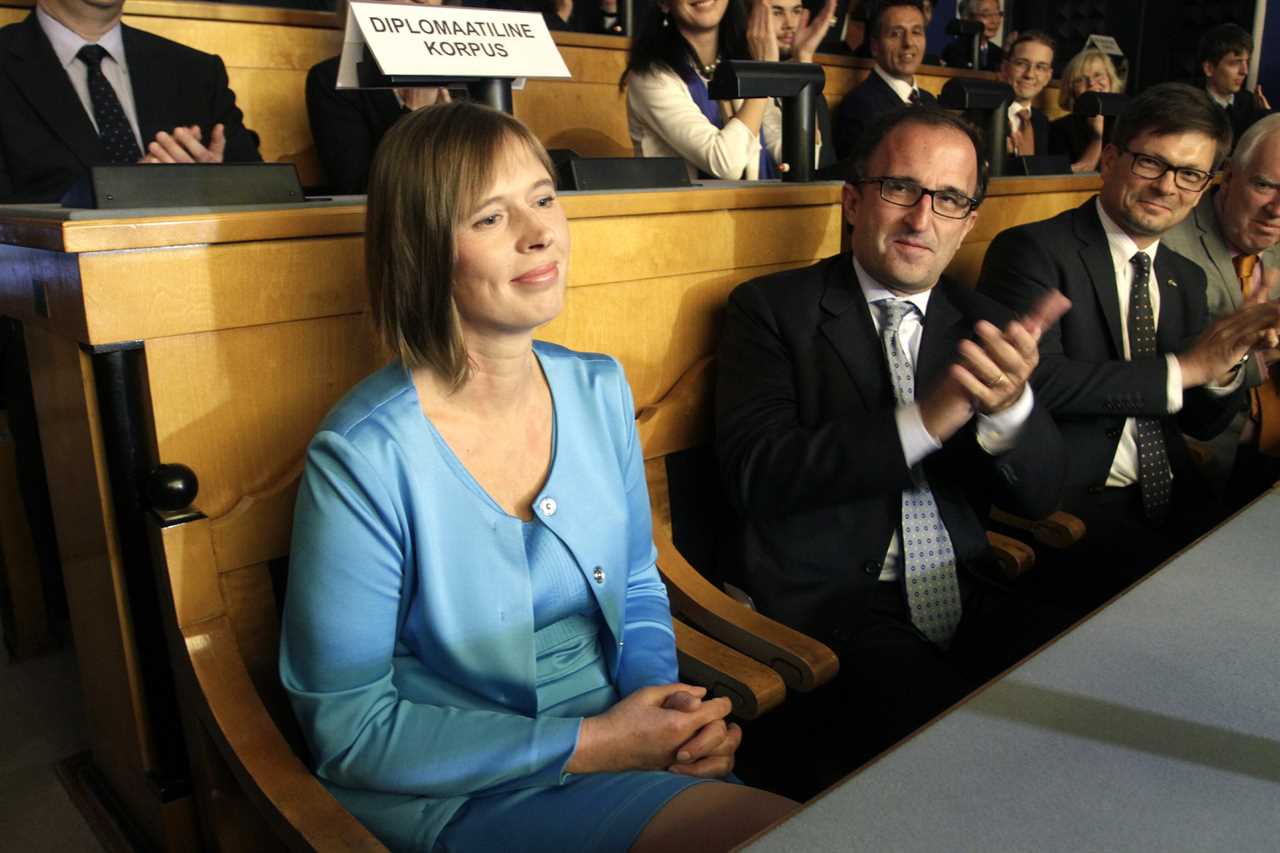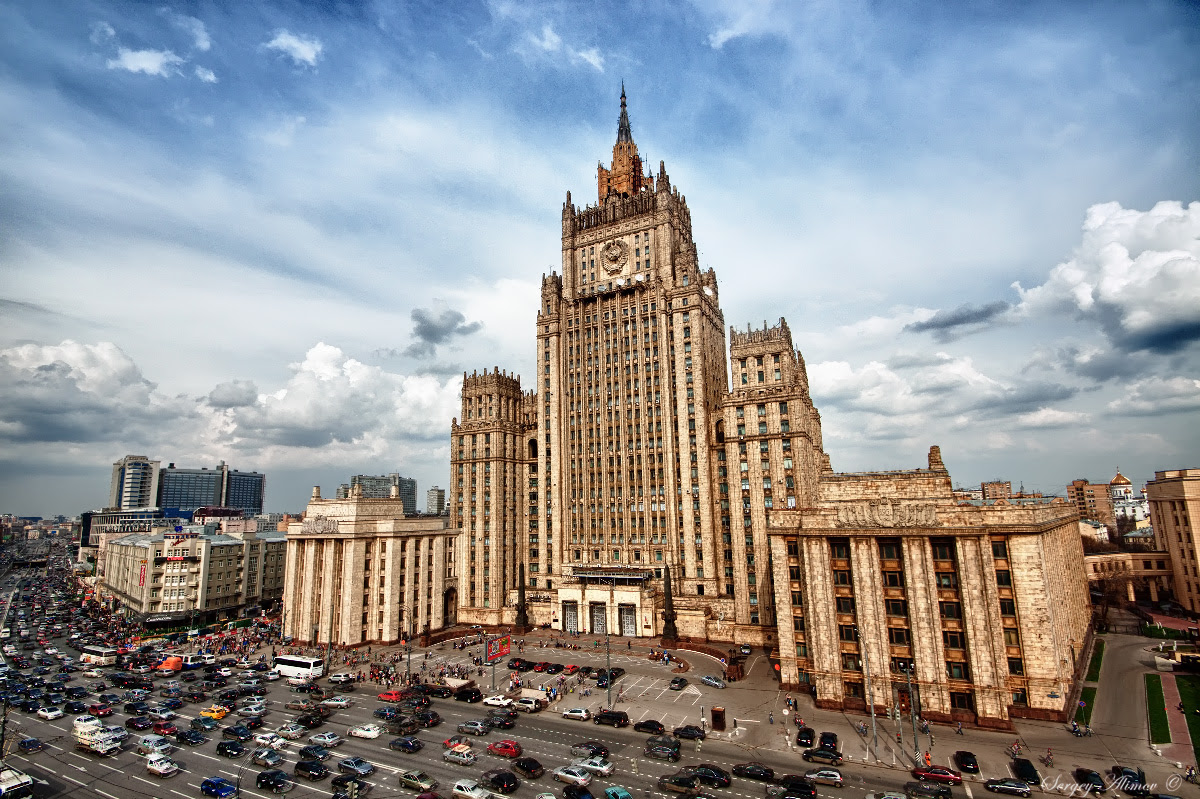In recent years Estonia did its best to develop an engaging and pragmatic approach towards Russia. In April 2019, President Kersti Kaljulaid visited Moscow, met with Putin, and invited him to the World Finno-Ugrian Congress to be held in Tartu.
At the time, Kaljulaid’s working trip produced some criticism among her Baltic counterparts for its alleged appeasing nature, given the international tensions provoked by Russia’s foreign policy conduct.
The current Estonian foreign minister, Eva Maria Liimets, in direct communication with her Russian counterpart, Sergei Lavrov, expressed a clear interest to come back to the long-awaited ratification of the border treaty between the two countries. Meanwhile, the Estonian Premier Kaja Kallas – unlike more sceptical Baltic governments – has not ruled out the future use of the Russia-made Sputnik-V vaccine, simply conditioning it to the approval by the European Medicine Agency.
Estonia has also been active in terms of cultural diplomacy and more inclusive policies towards its own Russian-speaking minority: on April 30 the Estonian Embassy in Moscow sponsored an unusual concert of two musicians performed from castles on the opposing banks of the river that separates the two countries – a cultural gesture with a strong political message.
Estonia’s constructive approach, implying the de-ideologization of non-geopolitical issues and the wide use of people-to-people contacts, clearly contrasts with the Kremlin’s traditional narrative that depicts Tallinn’s foreign policy as ‘immature’ and ‘Russophobic’, unable to undertake pragmatic steps to reduce deeply rooted tensions and historical path dependency.
Moscow’s narrative was traditionally grounded in the “divide-and-rule” approach towards the EU and NATO. A number of (especially) Western European member states have not been completely immune to this narrative, sometimes portraying the Baltics as obsessed about Russia and hawkish in relations with Moscow. This convergence of misperceptions has often undermined Tallinn’s capacity to successfully affect Brussels’ Russia policy and contributed to widening the gap between ‘old’ and ‘new Europe’.
Confronted with Estonia’s pragmatic diplomacy, Moscow could have hypothetically profited from it, especially given its growing international isolation. By making good use – at an international stage – of Tallinn’s goodwill to engage, Moscow could hope to crack the traditional wall of diffidence and mistrust with its Western neighbors and rebuild its international reputation in the West. Russia could therefore portray Estonia’s openness to engage in a number of bilateral issues as a good diplomatic practice that conveniently contrasts with the more intransigent and uncompromised approach of other Baltic and Central and Eastern European governments.

Estonian President Kersti Kaljulaid. EPA-EFE//VALDA KALNINA
This approach would be especially significant from Moscow’s perspective since Estonia is currently a non-permanent member of the UN Security Council. Instead, Russia has consciously chosen to disregard this and to reproduce its traditional neo-colonial tones towards Estonia and its foreign policy without attaching any value to Tallinn’s symbolic and substantial steps. Overall the message is clear: according to Moscow’s imperial perspective, no pragmatic middle ground is allowed between all-accepting vassals and unrepented foes.
The events that triggered Russia’s reaction and, ultimately, revealed its inability and/or unwillingness to temper, reduce, or abandon its negative attitude towards Tallinn, are connected to the recent tensions between Prague and Moscow regarding Russian diplomats and intelligence operatives involved in an explosion at a Czech arms depot in 2014 which killed two people.
In this context, Estonia has joined a group of European countries that expelled Russian diplomats as a sign of solidarity with the Czech Republic. While only twelve (out of twenty-seven) EU member states took similar actions, Estonia’s response was relatively mild – in comparison to others – and specifically, in language and diplomatic framing, limited to the context of Russia’s interference in Czech affairs.
Reaction from Moscow was quite lucid and all but mild – despite years of Tallinn’s commitment to develop a relationship on pragmatic grounds. Russia has disengaged from the Finno-Ugric institutions – just one day after the expulsion – and continued to develop its own Finno-Ugric events. Aeroflot cancelled flights from Moscow to Tallinn. In the meantime more than once in May Russian jets violated Estonian airspace, to which the Estonian Foreign Ministry reacted by summoning the Russian ambassador in Tallinn.
The head of the Estonian Language Department was declared persona non grata in Russia, along with the President of the European Parliament David Sassoli and the EU Commissioner Vera Jourova. Ultimately, Russia included Estonia in a list of “unfriendly countries” – a new concept in the Russian foreign policy lexicon – along with Latvia, Lithuania, Poland and some other non-EU countries.
As seen from Moscow’s perspective, the expulsion of a diplomat overweights the importance of many other diplomatic and cultural tracks that were tried by the Estonian government. However, even before the Russian diplomat was expelled, Russia didn’t show a positive reaction to signals coming from Tallinn. Russian Foreign Minister Sergei Lavrov has specifically mentioned the Baltic states’ allegedly anti-Russian policies in his first interview after Josep Borrell’s visit to Moscow. And Lavrov has unequivocally linked the prospects of the border treaty with political conditions, namely “solving the issues related to discrimination of Russian-speaking population, marginalization of Russian language in Estonian education, politically motivated persecution of Russophone media and public activists, as well as unacceptable attempts to falsify history”. At the same time, the Russian Ministry of Foreign Affairs clarified that it is “fundamentally important that in the process Estonia does not advance any […] political conditions”. Against this background framed in terms of post-colonial subalternity, it is not surprising that Estonia, along with other Baltic states, was an object of a new type of “deep fake incursion” that imitated Leonid Volkov, the head of Alexei Navalny’s headquarter, who was supposed to speak with a group of Estonian MPs.
It is absolutely clear that, as of now, Moscow prefers to ignore all the positive developments in both domestic and foreign policies of Estonia, and harshly reacts to a manifestation of normative solidarity between EU members. Lavrov’s declared readiness to discontinue relations with the European Union is accompanied by the old policy of dividing “good Europeans” (pragmatic and unpolitical) from “bad Europeans” (normative and politicizing).

Russia’s Ministry of Foreign Affairs headquarters in Moscow. FLICKR
The latter category is an object of psychological pressure: as Russian political analyst Sergey Medvedev put it, “the production and exportation of fear” became a key element of Russian foreign policy. Pro-Kremlin commentators (for example, Timofei Bordachev) don’t hide their message: small countries should care a lot about their inclusion into the “unfriendly list” since Moscow might always contrive new measures against them. These measures leave no space even for cultural diplomacy, a sphere that was considered relatively autonomous of geopolitical divisions. And they are detrimental to the Russophone diaspora in Estonia (as well as Latvia) that otherwise is an object of Moscow’s care and protection.
In a way, Moscow is increasingly a victim of its own fears and geopolitical obsessions. While the Kremlin seem to be wishing, more in words than through facts, for a more constructive and pragmatic future when referring to the alleged immaturity of the Baltic States’ foreign policy, it is exactly Moscow’s paternalistic approach, stubborn and zero-sum-game that prevents a change in these dynamics. Russia’s attitude and diplomatic contempt towards Tallinn (and many of the capitals of its former empire) is aimed at widening and deepening the geopolitical gaps between the ‘good’ ‘bad’ Europes.
Evidently, the inclusion of Estonia into the list of “unfriendly countries” does not make Estonia safer. Henceforth all appeals to enhance Estonia’s efforts to improve its relations with Russia, including those coming from Russophone and Russia-loyal politicians, will lose much of their validity, since they would anyway be considered as coming from an “unfriendly country”. Yet all this is likely to tell more about Russia than about Estonia.
Indicatively, Putin’s list refers to “countries”, not “states” or “governments”, which implies that the Kremlin refuses to see any differences between the officialdom and society, as well as between “high politics” and “low politics”. This seems to be quite consequential for the much-propagated concept of “the Russian World”, both culturally and politically, as well as both within and outside Estonia.
Ultimately, based on a recent highly symbolized celebration of the Victory Day on May 9 in Moscow’s Red Square – which, only in 2010 attracted more than 25 foreign delegations from the major Western powers and many of today’s “unfriendly countries” from Estonia and Latvia to Poland and the Czech Republic- should Putin wish to draft a list of “friendly countries”, he would find just one position reserved for Tajikistan.
 UK PoliticsWorld PoliticsVideosPrivacy PolicyTerms And Conditions
UK PoliticsWorld PoliticsVideosPrivacy PolicyTerms And Conditions
